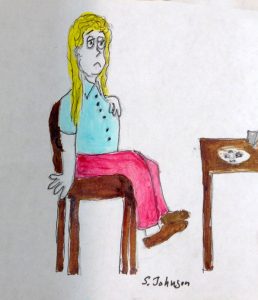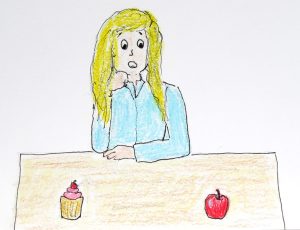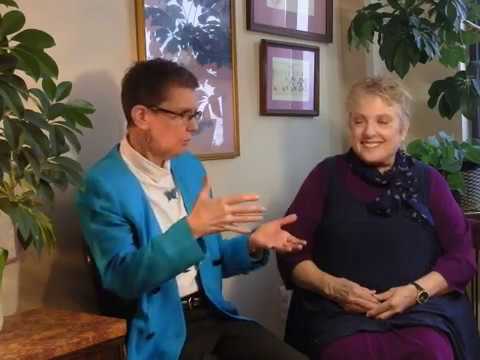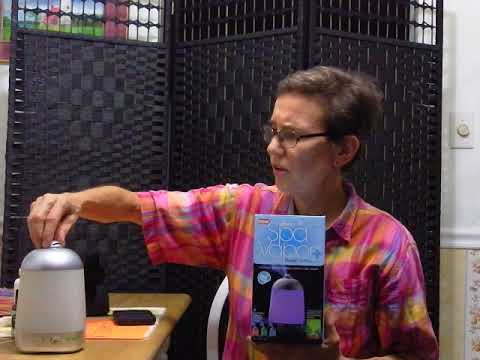(Note: Bipolar disorder causes extreme mood swings of emotional highs (mania) and lows (depression). EMDR is a therapeutic technique that reduces painful emotions and neutralizes bad memories using “bi-lateral stimulation”, usually eye movements.)
The following is from 2 interviews I have had with Laura:
Suzanne: Laura can you paint a picture of how things were before you were diagnosed with bipolar disorder in your late teens?
Laura: I did not know how to function so I took pills. Medication that I got from my father who was a physician. I took speed during the day and Seconal at night to sleep and Darvon to get high. So I would carry them in my pocket and eat them without water just to sustain myself.
Suzanne: To help you with the moods you were having?
Laura: The moods. I was so miserable. Pills helped me function. When I had to go to work I would take Speed.
EMDR Helps BiPolar Disorder and Childhood Trauma
Learning from the Oldest People in the World How to Live Longer & Happier
In 2004 Dan Buettner headed a team with National Geographic and researchers of longevity to find places around the world where people lived longer. They named these places the Blue Zones. Buettner identified five geographic areas where people live statistically the longest: Okinawa (Japan); Sardinia (Italy); Nicoya (Costa Rica); Icaria (Greece) and Seventh-day Adventists in Loma Linda, California. They learned that people in these locations reached the age 100 at rates much greater than the national average in the United States. In Loma Linda, CA, Seventh Day Adventists live 10 years longer than the average North American does. In Icaria, Greece, an April 2009 study on the island of Icaria uncovered the location with the highest percentage of 90-year-olds on the planet – nearly 1 out of 3 people make it to their 90s. Furthermore, Icarians “have about 20 percent lower rates of cancer, 50 percent lower rates of heart disease and almost no dementia.” quoted from:. The Blue Zones: Lessons for Living Longer From the People Who’ve Lived the Longest
Sugar-Pleasure or Poison?

This blog post is for people who want to motivate themselves to stop overeating and eat healthier.
Sugar brings pleasure. When does sugar become “a poison?” It all depends on the amount of sugar eaten, if a person is “sugar sensitive” (sometimes addicted to sugar) and the kinds of sugar eaten. In the 1700’s the average American intake of sugar was 1 teaspoon a day. Today the average American intake of sugar is 22 teaspoons of sugar a day.
Reducing overeating using EFT

EFT is one of my favorite techniques that speeds up clearing or reducing negative emotional intensity. It uses tapping of the fingers on acupuncture points while having the person tune into specific issues using a protocol simple enough anyone can learn. While it can be used as a self-help technique on one’s own, it is by far most effective to use with the help of an experienced EFT practitioner.
I have known about EFT since the mid 90’s but did not start to use it until about 7 years ago. I became friends with a social worker named Annette Richards. She was enthusiastic about how well EFT had helped her, her clients and her friends. I have worked on some of my own issues at an EFT workshop and one on one with Annette. Each time I worked with her using EFT, it resulted in improved emotions and perceptions.
Time Debt, Trauma, Trying Too Hard and Ambition
One of the most common after effects of any kind of trauma is becoming so busy one does not have time to process one’s emotions or feel the emotional pain.
Do you find yourself frequently striving to achieve the impossible?

 These photos are of my dog Pebbles jumping to catch a squirrel about 20 feet above her (looking down at her smugly). I wonder why my dog will jump 20 times to reach an animal that is clearly out of her reach. I also wonder why people try so hard to make relationships work where they are being mistreated by their spouse, work long hours to experience a sense of achievement that keeps escaping them, and try to do more than their time allows.
These photos are of my dog Pebbles jumping to catch a squirrel about 20 feet above her (looking down at her smugly). I wonder why my dog will jump 20 times to reach an animal that is clearly out of her reach. I also wonder why people try so hard to make relationships work where they are being mistreated by their spouse, work long hours to experience a sense of achievement that keeps escaping them, and try to do more than their time allows.
Trauma and Overcoming Insomnia, Part 1, video and article
Do you have an over active mind that won’t shut off at night? Do you find yourself dragging at work because you could not get to sleep the night before?
Often people with unresolved trauma have difficulty consistently getting a good night’s sleep. I read on one book that having insomnia is a kind of trauma in and of itself. Even going to bed begins to have a negative association for these people who fear another long night being awake when it feels like everyone else is sleeping.
In this video I hope to present some ways to reduce insomnia that is not well known compared to the typical good sleep hygiene tips: https://youtu.be/QdltoHRevos
Trauma treatment — Under the influence of trauma, Part 2
People who have experienced emotional and mental abuse often are so wounded they sometimes do not have the ability to empathize with other people. They are unable to put themselves in the other person’s shoes. Ironically these same people may do too much for others and allow themselves to be taken advantage of. They sometimes feel another person’s pain as if it were their own pain.
Fascinating research on overeating, using mice
For years I wondered why people, including myself, were unable to say “no” to certain foods. A book titled The Sugar Addict’s Total Recovery Program by Kathleen DesMaisons provides some answers to this question. DesMaisons has a degree in Addictive Nutrition, which uses nutrition to heal addiction.
Trauma, insomnia and how to handle “the morning after” (you slept poorly)
Trauma, whether big or “small” often interferes with sleeping. Even when someone is in therapy, self help support groups and/ or taking medications or supplements to help the person sleep, insomnia may persist. I believe therapy that gets to the root of the problems using EMDR, EFT or other methods can restore one’s sleeping patterns. In the mean time, this post is how to help a person make the most of a bad night’s sleep.
Note: I know insomnia is a very frustrating complex problem that can cause great suffering. I have experienced it many times myself. Keeping this in mind, I hope the following reflections can be helpful:




